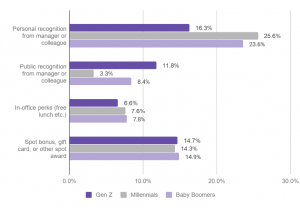Data privacy and security requirements are not going away so get to work on your privacy policies before someone else does it for you.
At a recent MarTech conference, I gave some presentations on consumer privacy, stressing that it’s becoming more obvious with every new regulation that privacy as an add-on or afterthought won’t work. While attendance was less than I had hoped, those who came left the sessions committed to achieving “privacy by design” and armed with the tools they needed to get it done.
What I’d like to ask the rest of the conference attendees is….where the heck were you?
- Did you attend some easy-peasy session full of confirmation bias, so that you could get a pat on the head that you’re doing everything right?
- Did you attend a session on fascinating technology that your company is light years away from being ready to use?
- Did you attend a session that would help you make small improvements in an area where you’re already doing pretty well, like SEO?
- Or did you attend a session led by the person you hope will be your next boss?
I get it. Believe me, I attend these conferences all the time. There are more interesting sessions than you can possibly attend, all while trying to connect with your colleagues across the industry. And conferences are often a fun getaway from your ordinary routine. So while I may have been poking a little fun, I realize there’s no way to hit everything.
So why would you choose sessions that would make your life (temporarily) harder? Your current practices are rolling along just fine (so far!), and you see no reason to rock the boat. And you really, really aren’t excited about doing anything that would limit your use of data, because that would inhibit your ability to engage customers. And THAT could affect your bonus. Who would voluntarily do anything that might negatively impact their own bank accounts?
But privacy isn’t going away
It’s time to face reality, folks. Data privacy and security requirements are not going away. The days of unlimited use of big data are over. And you can either face that now, or face it later when your company is fined or sued for misuse of consumer data. Or when customers rebel and rake your company over the coals on social media.
It’s better to create privacy policies yourself rather than to have them imposed on you.
You’re going to have to address privacy whether you want to or not. And, since marketers depend on consumer data more than other departments, I’d rather be the one leading the charge, so I could design privacy policies the way I wanted them. Even if your organization’s leaders decide that IT or legal should take the lead, you should still be an integral part of the process, educating everyone on how marketing uses data and on how any proposed changes will affect your ability to do your job.
Are you up to the challenge?
Are you ready to admit that you can’t keep burying your head in the sand on privacy issues? And that you’ll be a whole lot better off if you spearhead (or enthusiastically participate in) the effort yourself so you can design policies that work for you and for your customers?
If so, let’s move on to the good news!
Developing privacy policies has some real benefits
Hopefully, I’ve got your attention now. So let’s move away from the challenges so I can tell you about the benefits of having robust privacy policies:
- You won’t have to be constantly asking permission before launching campaigns. Your privacy policies will lay out what you have to do and what you can’t do, and, between those guardrails, you can be as creative as you want.
- You won’t have to waste time waiting for approvals. Without privacy policies in place, getting permission for a campaign really means permission to get started. Many marketers still have to get approval for each piece of content.
- You won’t necessarily see a negative financial impact. In fact, interactions with your customers will be more effective, because you’ll be engaging people who have chosen to receive your messages.
- You’ll experience less friction with other functional areas because your roles will be clearly established in advance.
- You’ll establish yourself as someone who has your company’s best interest in mind, isn’t afraid of challenging the status quo, and is willing to take on the hard work of spearheading change.
- Through the work of creating privacy policies, you’ll make valuable contacts in other departments, like IT, Procurement, and Legal.
- You’ll establish yourself as a leader within your own Marketing department, setting yourself up for rapid career advancement.
For those of you brave and proactive enough to get off your backsides, developing your organization’s privacy policies is your chance to be a superhero. Just like death and taxes, the coming privacy regulations are unavoidable, so stop trying. Learn what you need to know (I’ve provided some resources below), and get to work on privacy policies before someone else does it for you!
More resources
- How to survive the coming data privacy tsunami
- Global map of data privacy laws and regulations
- GDPR.eu
- California Consumer Privacy Act
- LGPD: Brazil’s GDPR
Opinions expressed in this article are those of the guest author and not necessarily Marketing Land. Staff authors are listed here.
Marketing Land – Internet Marketing News, Strategies & Tips
(74)
Report Post







